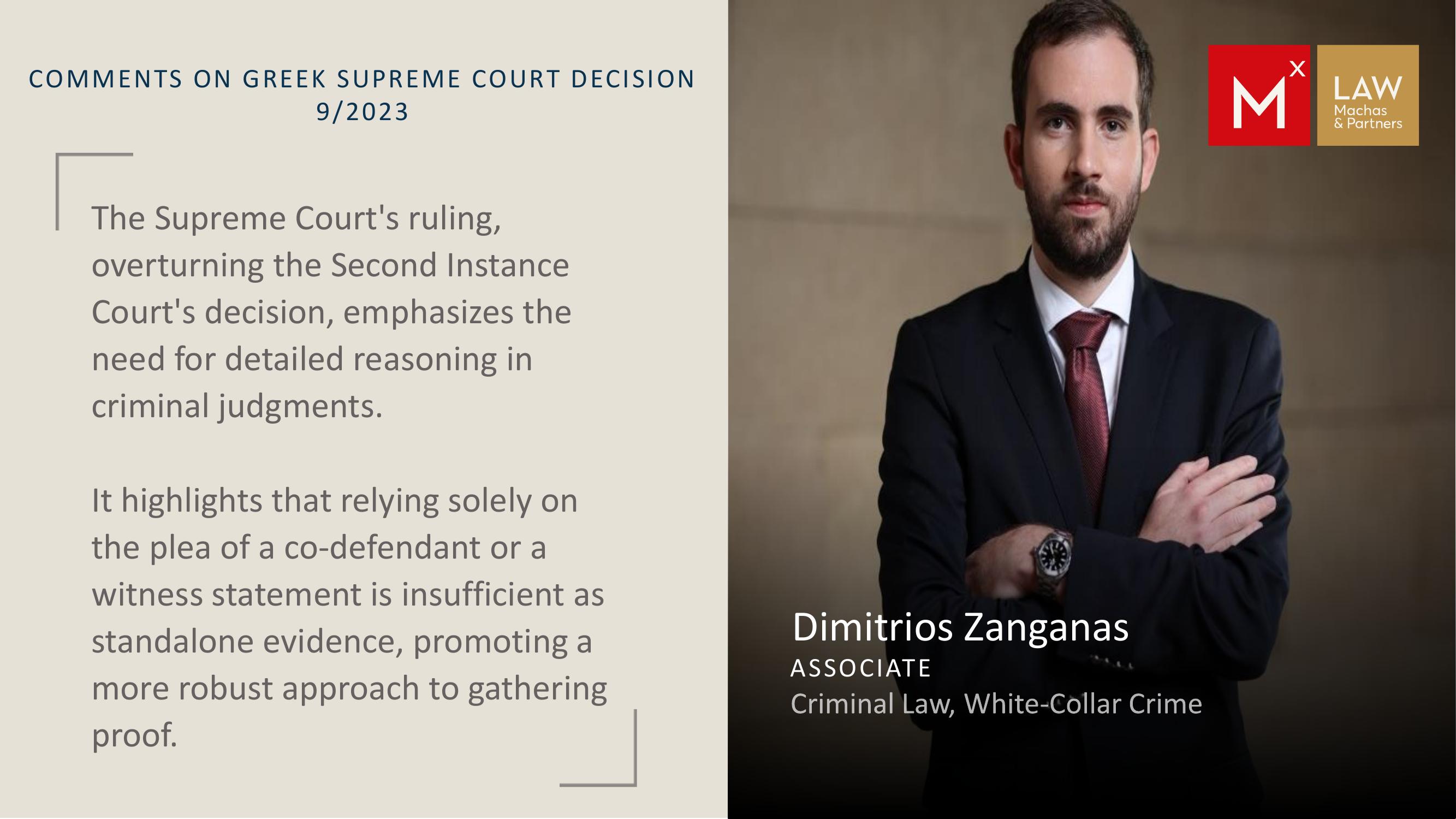“Analysis of Greek Supreme Court Decision 9/2023: Interpreting Art. 211 CCP”
The Supreme Court has recently released and finalized the Decision No. 9/2023 issued by the 6th Criminal Chamber, which is of particular interest in the field of Criminal Procedural Law with respect to the interpretation of Art. 211 of the Code of Criminal Procedure (CCP), namely how the co-defendant’s plea may affect the outcome of the criminal proceedings.

In particular, Art. 211 of the CCP provides that “witness statements or explanations and pleas given by a person who is co-defendant for the same offence may not be taken into consideration in arriving at a verdict against the defendant, unless there is other evidence which is expressly stated in the court decision”.
The Supreme Court has rightly overturned the judgment of the Second Instance Court against the appellant for lack of adequate and detailed reasoning, since, as stressed by the Supreme Court, the conviction of the Second Instance Court was based solely on the plea entered in a different trial and before a different court by the person who was allegedly persuaded by the appellant aiding and abetting him/her to cause physical harm, either by himself or through third parties, and on the statement of a witness who relied solely on the defendant in question as their source of information. In fact, the Supreme Court’s decision rightly observes that “the use of a witness statement or the plea of a co-defendant as evidentiary means is not entirely prohibited, however this cannot be the sole admissible evidence in support of a verdict”.
The significance of the said Decision also lies in the fact that – by interpreting Article 211 of the CCP – it recognized that according to the said provision the co-defendant is not only the accessory, aider – abettor or co-perpetrator, as defined in Articles 45 – 49 CC, but also any other person whose offence is based on the same actual event, irrespective of whether or not he or she was previously tried separately on account of the different jurisdiction of the competent courts hearing the respective charges against each of them.
Undoubtedly, this Decision is a positive one, as it contributes significantly both to the probative value and certainty that are required for a possible conviction of the defendant, and to the overall reinforcement of the fairness of the criminal proceedings, by rejecting the strict formalistic approach of Art. 211 CCP which would create legal ambiguities.
-> You can read the full Decision here